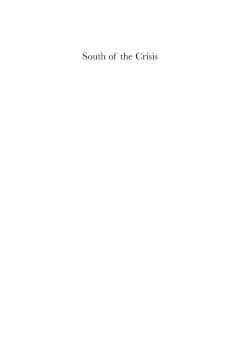
Additional Information
Book Details
Abstract
The book examines why and how global capitalism has entered a phase of unsustainable crises of accumulation and legitimacy, and looks at various solutions to such crises, from mild reform to radical overhaul.
The book then examines the various scenarios from a Latin American perspective, arguing that different countries follow diverse paths in adapting to the crisis - with significantly different outcomes. Their common challenge is how to achieve economic growth with social inclusion.
'A much-needed assessment of the crisis from the Latin American perspective. Juan Corradi provides a structural view of late capitalism and the necessary conditions for recovery and growth… Food-for-thought for those interested in the future of this region.' —Alejandro Rausch, Consultant for Private Sector Development, Poverty, HD and MDGs Cluster, United Nations Development Program Regional Bureau for Latin America and the Caribbean
'South of the Crisis' examines why and how global capitalism has entered a phase of unsustainable crises of accumulation and legitimacy, and looks at various solutions to such crises, from mild reform to radical overhaul.
The book then examines the various scenarios from a Latin American perspective, arguing that the continent is a 'garden of forking paths' rather than a homogeneous area, and that different countries are likely to try diverse experiments in adapting to the crisis - with significantly different outcomes.
One common challenge faced by all Latin American countries, albeit with different modalities, is how to achieve economic growth with social inclusion. Corradi investigates the pros and cons of different policy solutions to the challenge of inclusion.
'‘South of the Crisis’ is not your usual academic treatise. This exploration of the effects of the 2007–09 financial crisis on the emerging market economies mixes rational insights with just and compassionate policy prescriptions. With an emphasis on Latin America, Juan Corradi unveils the variable effects of advanced capitalism on the developing countries, as well as the political opportunities for more equitable reform that the crisis itself has offered up.' —Carol Wise, Associate Professor, University of Southern California, School of International Relations
Juan E. Corradi received his PhD in sociology at Brandeis University in 1974. He is currently Professor of Sociology at New York University and Visiting Professor at the Institute of Advanced Studies in Lucca, Italy.
